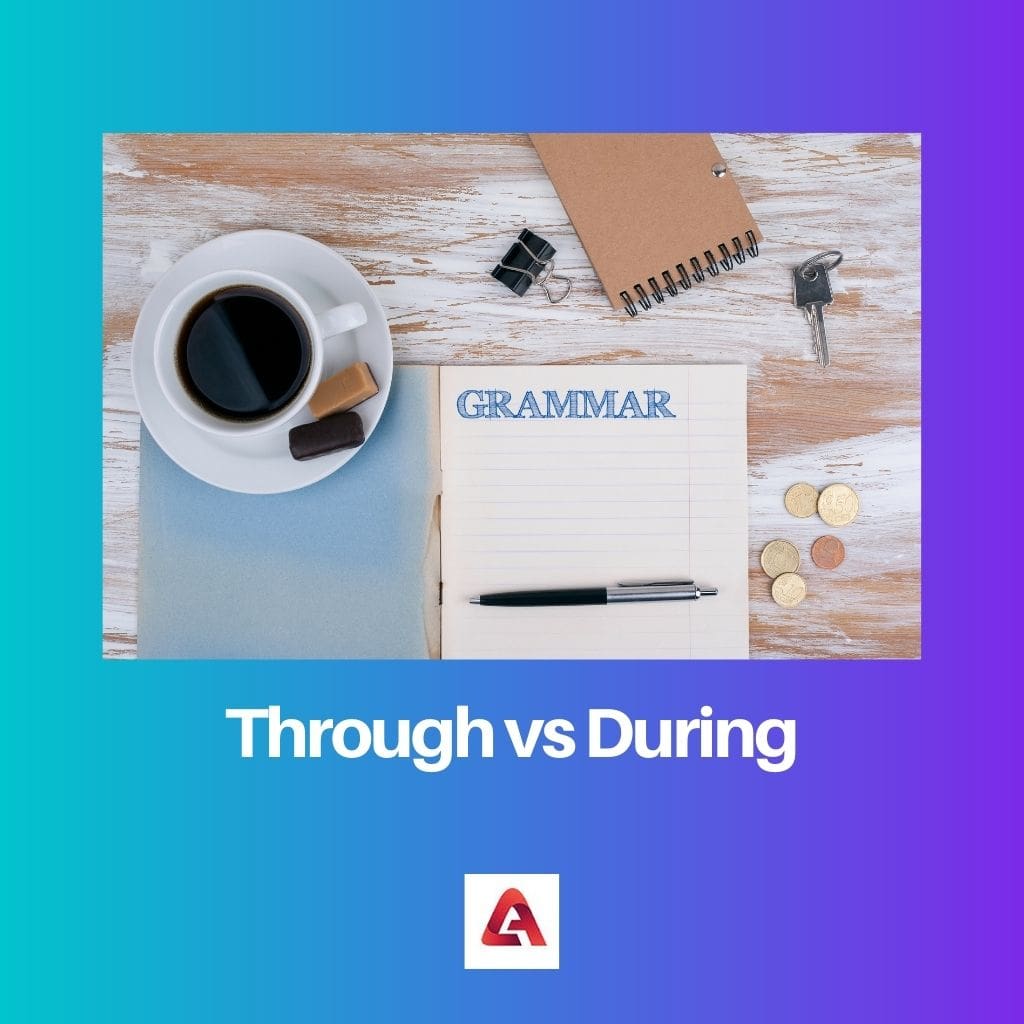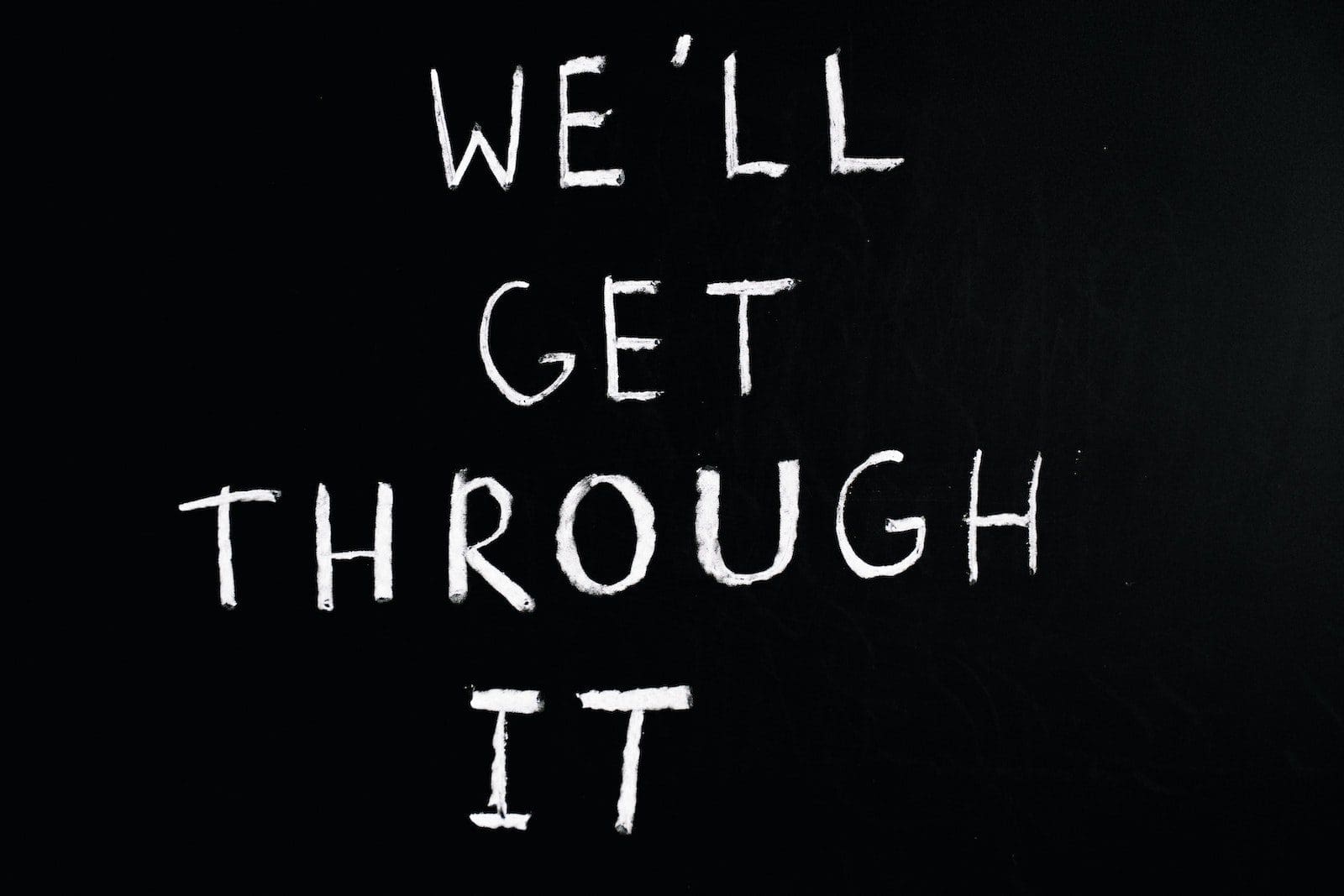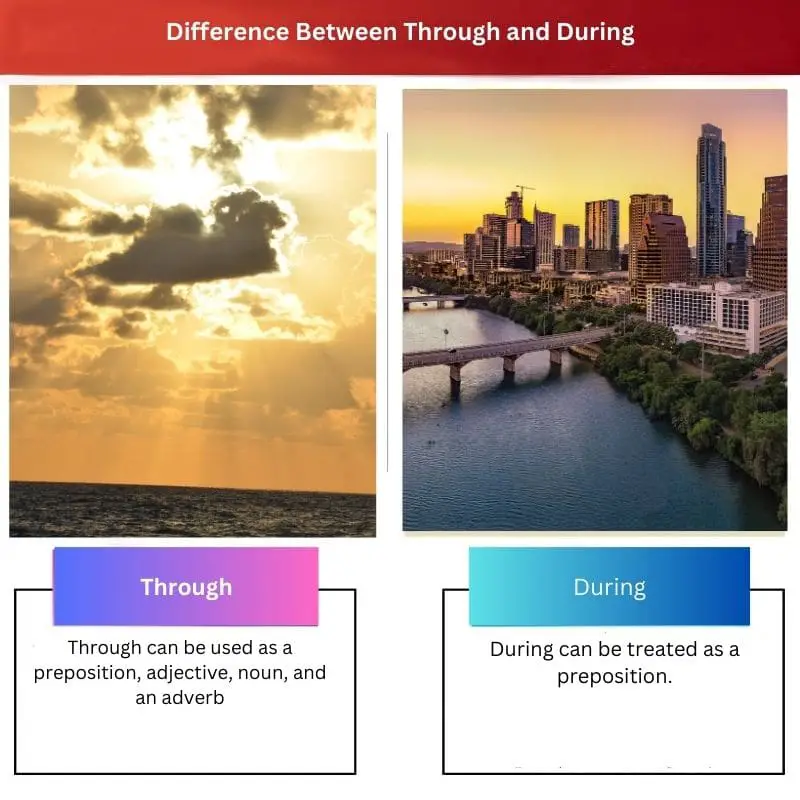In this article, we give a similar gist about the meaning of two different prepositions-through and during, which are sometimes confused and misplaced.
Key Takeaways
- “Through” is used to express the entire duration of an event or period, while “during” refers to a particular time within that period.
- “Through” conveys a sense of completion, whereas “during” highlights a specific moment or phase within the time frame.
- “Through” can also indicate movement from one point to another, while “during” is solely used to describe the temporal aspect of an event.
Through vs During
Through indicates movement from one side to the other or completion of an action, indicating progress. During implies that something happens at the same time as something else and can also be used to indicate a period of time, but it emphasizes the time frame rather than the progress made.

Comparison Table
| Parameter of comparison | Through | During |
|---|---|---|
| Meaning | Through implies the start to the end of a course of time. For example, it rained all morning through July into August. | During refers to a certain point of time between the start and the end of the course of time. For example, a new teacher was appointed during her absence. |
| Grammatical forms | Through can be used as a preposition, adjective, noun, and an adverb | During can be treated as a preposition. |
| As a preposition | The word ‘through’ as a preposition refers to movement from one end of something to another. For example, the farmers were walking through the fields. | The word ‘during’ as a preposition is used before a noun to signify when some event happens. For example, no one was allowed to chew gum during the seminar. |
| Reference | Through can be used to discuss a reference in both time and place. | During can be used to talk about only a reference in time. |
When to Use Through?
The word ‘through’ refers to the movement on and out of the other. ‘Through’ can be used as an adjective, preposition, adverb, and noun in English.
General rules to follow when to use the word ‘through’:
- The term ‘through’ can be used to specify relationships.
- For example, We are related through our grandparents.
- ‘Through’ can likewise spread the news on any matter.
- For example, We heard of the bad news through your husband.
- The word ‘through’ can be used to indicate time.
- For example, May through July.
- The word ‘through’ can denote the beginning to the end of a process.

When to Use During?
The word ‘during’ can be used throughout a period or course of time. ‘During’ can be used as only a preposition in English Grammar.
General rules to follow when to use the word ‘during’:
- During can likewise mean the same as.
- For example, His great-great-grandfather fought against the British during the year 1945.
- During means something that occurred at an unspecified course in time.
- For example: During the First World War, his grandfather just disappeared.
- The word ‘during’ cannot refer to numbers and a significant time.
- For example, They lived in India for four years is an incorrect statement.
- ‘During’ refers to something that occurred when an action/event happened.
- For example, I heard a loud noise during the night.

Main Differences Between Through and During
- As a preposition, ‘through’ refers to the movement from one side of a thing to another.
- The word ‘through’ is used in a sentence about time and place. The word ‘during’ is used in a sentence about the only time.

- https://dictionary.cambridge.org/dictionary/english/through?q=Through
- https://www.merriam-webster.com/dictionary/during

This article serves as a valuable resource for those seeking to enhance their grasp of the English language.
Absolutely, the depth of understanding provided by the article is indeed commendable.
A very comprehensive explanation about the meaning of through and during. I particularly appreciated the thorough comparison table.
This article has effectively clarified the appropriate usage of ‘through’ and ‘during’ in various contexts.
Indeed, it’s clear that ‘through’ and ‘during’ have different implications when used in a sentence.
The article effectively debunks common misconceptions surrounding the application of ‘through’ and ‘during.’
Yes, it’s apparent that the article strives to provide clarity on these misunderstood prepositions.
The informative aspect of this article is commendable, especially in addressing the subtle differences between ‘through’ and ‘during.’
The use of examples to illustrate the application of ‘through’ and ‘during’ enriches the understanding of this grammatical distinction.
The grammatical forms and general rules provided in this article have significantly helped in clarifying the nuances between ‘through’ and ‘during.’
I completely agree. The examples effectively highlight the differences between these two prepositions.
The rules and guidelines on the use of ‘through’ and ‘during’ are explained in a manner that avoids ambiguity.
I couldn’t agree more. The clarity of the explanations truly enhances learning.
The informative content and the lucid examples make it a valuable resource for language learners.
This article succinctly provides a clear delineation between ‘through’ and ‘during.’
The distinct understanding of ‘through’ and ‘during’ as conveyed in this article has been enlightening.
Absolutely, gaining insight into the precise usage of these prepositions is invaluable for language comprehension.
The elucidation of the nuances between ‘through’ and ‘during’ is of great assistance in refining one’s language skills.
The article’s discerning approach to unraveling the complexities of these prepositions is highly beneficial.
I couldn’t agree more. The precision of the article’s explanations is certainly commendable.
The comparison table made it easy to understand the distinctions between ‘through’ and ‘during.’
Yes, the table offers a clear and concise summary of their differences.
Absolutely, the article presents a well-structured and insightful analysis.
The coherent explanations and examples in this article contribute to a deeper understanding of when to use ‘through’ and ‘during.’
The detailed analysis undoubtedly aids in disentangling the confusion between ‘through’ and ‘during.’
Definitely, the article offers a comprehensive guide for proper usage of these prepositions.